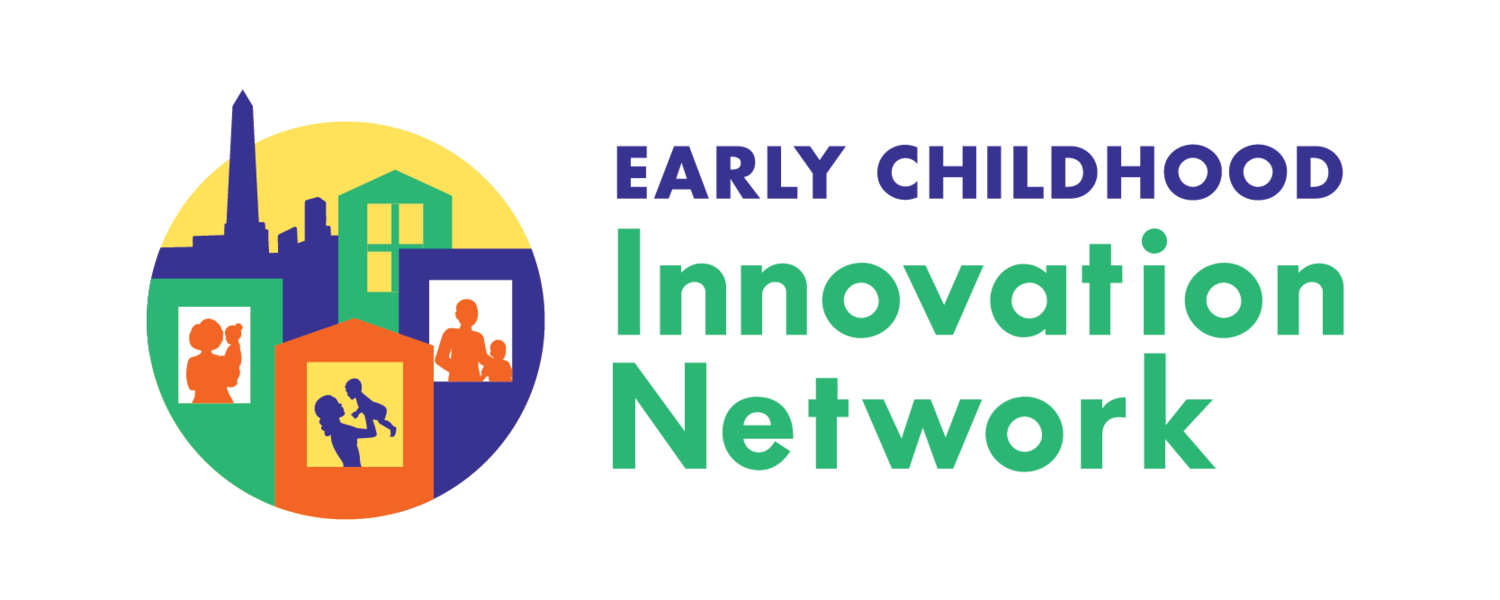About Early Childhood Mental Health Consultation (ECMHC)
What is Early Childhood Mental Health Consultation (ECMHC)?
Early childhood mental health consultation is a capacity-building intervention that tries to improve how schools and other learning environments support and promote social, emotional, and behavioral health. ECIN developed and validated an innovative way to bring early childhood mental health consultation to early learning, specifically for PreK classrooms working with 3- and 4-year-old children.
ECIN’s pilot ECMHC intervention was designed and evaluated based on how it impacted children’s social-emotional and early learning outcomes. The program was delivered to preschool-aged children in two public preschools over the course of one school year.
The model was created as part of a partnership between MedStar Health, an academic medical center, and AppleTree Early Learning, an innovative public charter school network with a comprehensive curriculum designed to support and educate children and families, both located in the District of Columbia.
What was the goal of ECMHC?
The ECMHC innovation’s goal was to build the abilities of teachers and schools to understand and respond to the mental and behavioral health needs of children.
Why ECMHC?
There is a clear need for effective and easy-to-access mental health services for students. It is also important to give teachers and school leadership support, guidance, and training to help them be prepared to support the wellbeing, social-emotional needs, and educational growth of all early learners.
While there is strong evidence that early childhood mental health consultation works, before the ECIN’s ECMHC pilot, there was little information about how it impacts PreK 3 and 4 classrooms in public schools and public charter schools.
What makes ECMHC unique?
The program’s early childhood mental health consultants used a menu of service options to design a flexible plan for support that fit the needs of each school. The model worked side-by-side to complement and enhance the school’s licensed social workers and counselors who provide direct social-emotional and behavioral support. Consultants and school staff work together as a team to provide:
Schoolwide supports
Ongoing training and professional development for staff to help them learn more about adverse childhood experiences (ACEs) and trauma-sensitive school practices.
Consulting with school leaders, including principals about school climate initiatives.
Classroom teacher consultations
Weekly meetings or activities with teachers about Tier 1 classroom practices and social-emotional learning.
Small group discussions about trauma-sensitive classroom practices.
Well-being check-ins or workshops for teachers.
Individual student consultations
Weekly meetings with teachers about interventions and supports for children with social, emotional, and behavioral challenges.
How do you know ECHMC works?
When we evaluated the program, we found that classrooms participating in ECMHC showed improvements from the beginning to the end of the school year in specific areas related to classroom mental health climate and social-emotional teaching practices.
Classrooms that participated in 20 or more weeks of ECMHC showed the most consistent improvements during the school year. They showed improvement in areas including:
More regular reinforcement of positive behaviors
Improved classroom interactions
Better quality of transitions between activities
Improved cooperation between staff
How did families and racial equity lead ECMHC’s work?
ECIN specifically partnered with AppleTree, a DC-based nonprofit founded in 1996 that serves 3- and 4-year-old children in the District of Columbia. When the program was evaluated, the AppleTree network included 10 schools teaching close to 1,000 children.
In those schools, 85% percent of children qualified for free or reduced price lunch and 59% were considered at risk for academic failure by the District of Columbia. About 89% of the children in these schools identified as Black or African-American, 9% as White, and 2% as Other. Also, 10% of students were English Language Learners and 5% received special education services.
How could ECMHC grow?
ECIN published the results of this innovative model in the peer-reviewed, academic journal School Mental Health: Using Early Childhood Mental Health Consultation to Facilitate the Social–Emotional Competence and School Readiness of Preschool Children in Marginalized Communities.
ECIN also sponsors a certificate program in infant and early childhood mental health consultation.
How does ECMHC make a difference to policy and/or existing systems?
ECIN partners with the Children’s Law Center, AppleTree, and other groups to advocate for funding to support more early childhood mental health consultation resources in public schools, as well as more publicly supported early learning centers in the District of Columbia. Changes or additions to the Uniform Per Pupil Funding formula, the Health Futures program, and the School-Based Behavioral Health program could help.
ECIN's ECMHC Team
Matthew Biel, M.D., MSc
professor, Vice chair, and chief of child and adolescent psychiatry
Medstar Georgetown University hospital and GEorgetown university school of medicine
Sarah Barclay Hoffman, M.P.P.
ecin’s director of policy
program manager, Children’s National Hospital
Leah Castelaz
policy attorney
Children’s law center
Megan Berkowitz, L.I.C.S.W., L.C.S.W.
positive behavior support manager
appletree institute for education and innovation
Impact Story: ECMHC in Action
“Some of our kids have experienced things that not even adults could handle, and they’ve been on this planet for such a short amount of time. This partnership brings skills and strategies into our schools that help us get our kids on the right path and moving forward as early as possible.”
Early childhood mental health experts provide on-site support and evaluation services at Appletree Early Learning schools. Learn more about what the program looked like in two schools: Douglas Knoll and Lincoln Park.
Contact the ECMHC Team
For more information, email ECIN.






